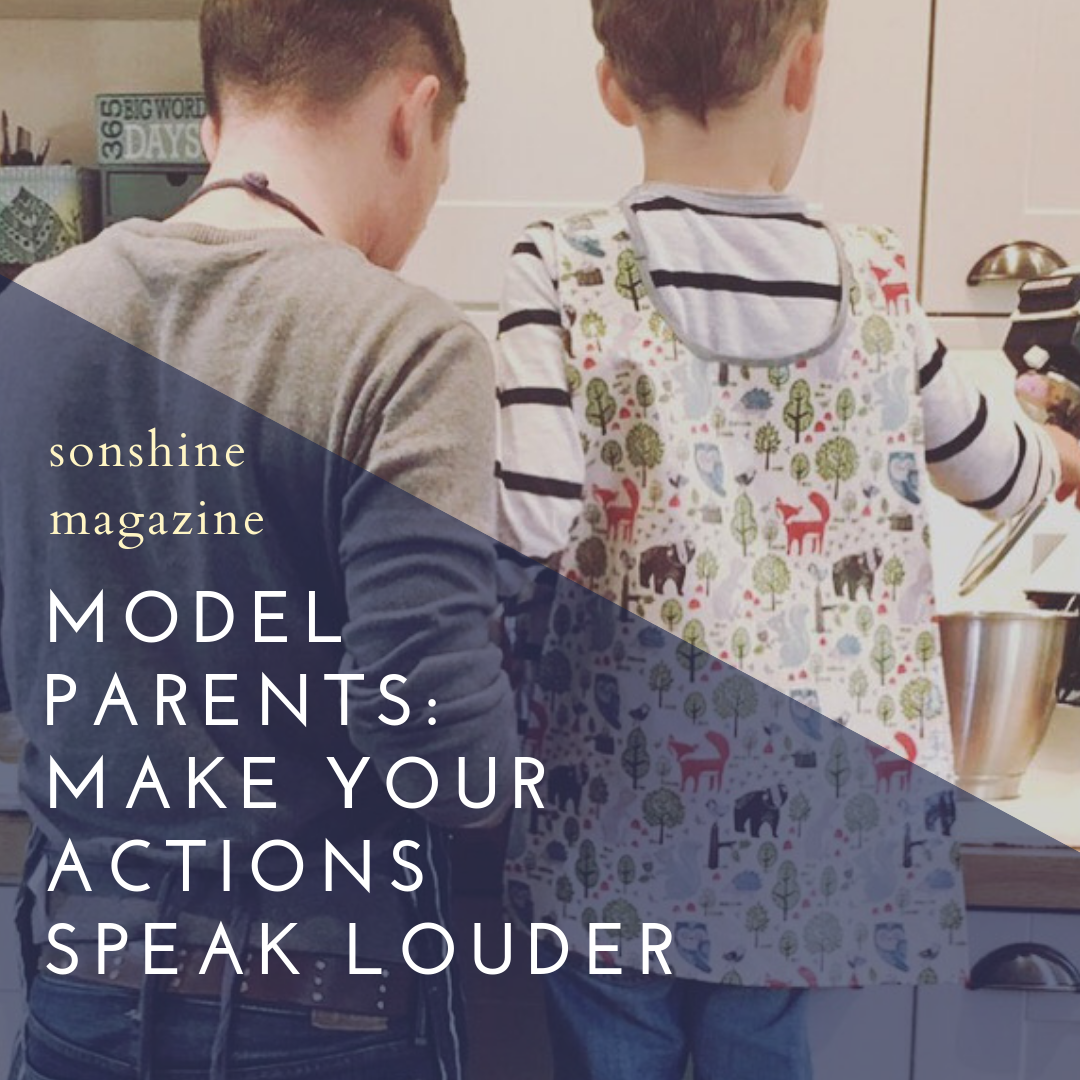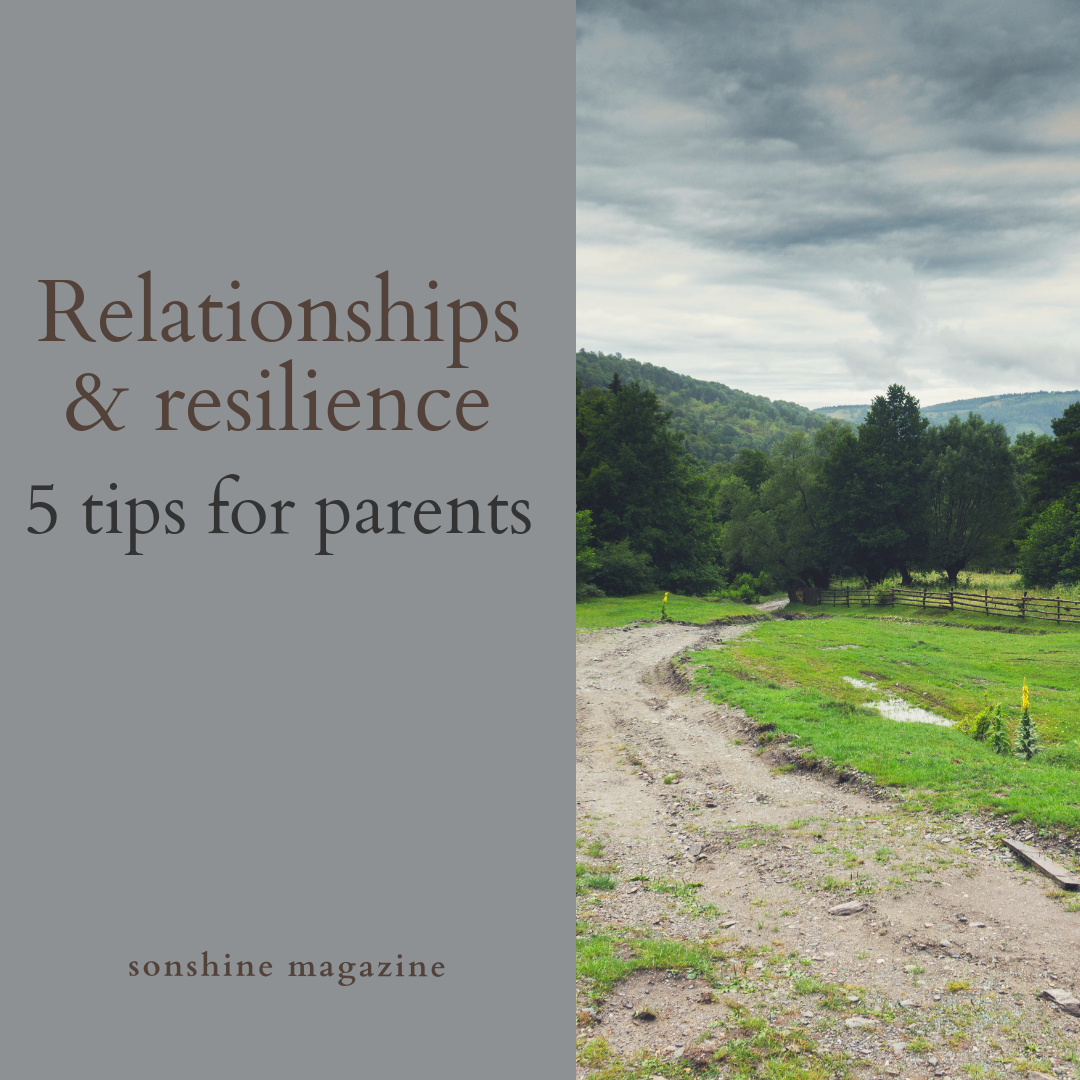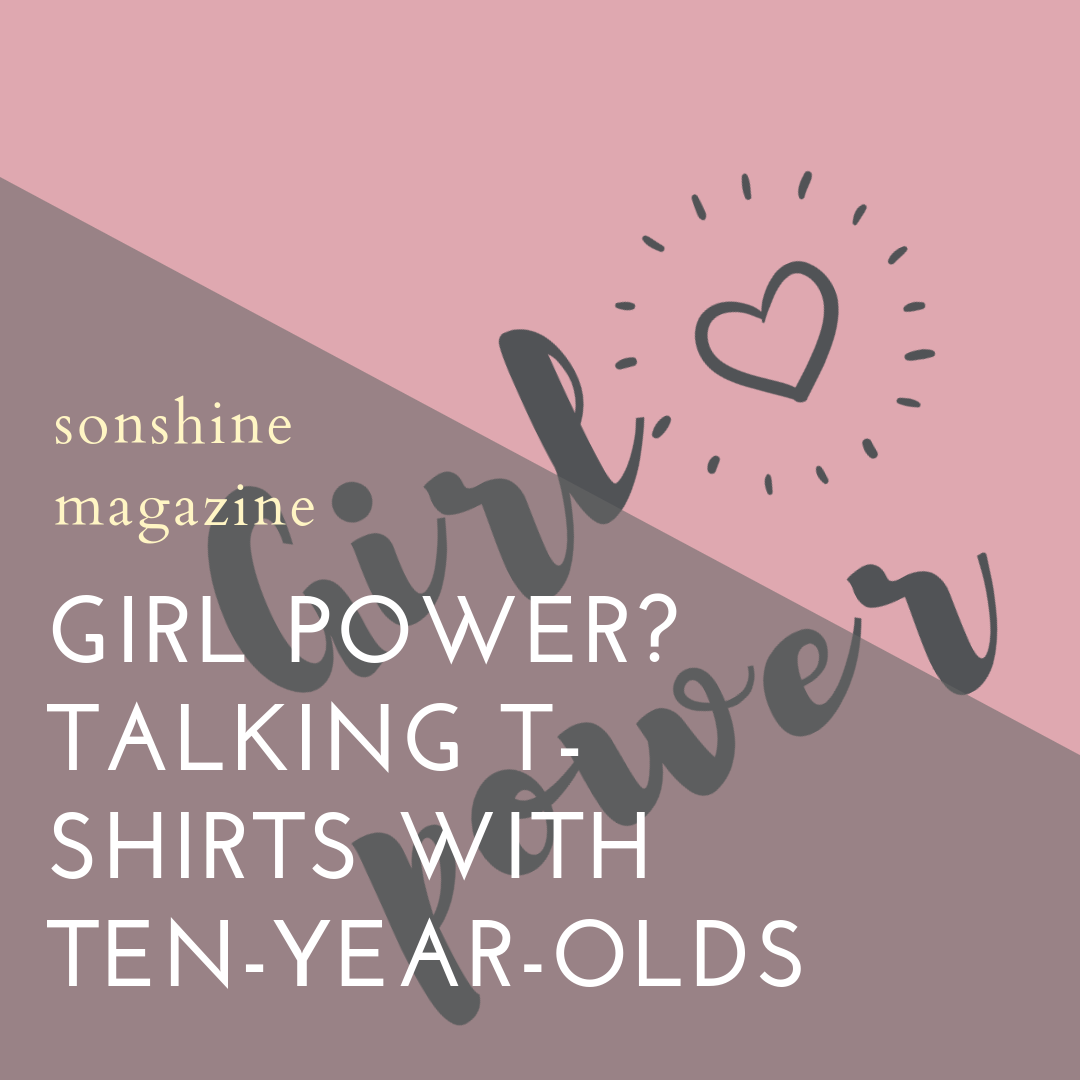Model Parents
Alex Mees muses on how, as parents, our actions speak louder than words, and gives us his tips to make sure our At-Home messages cover both.
I have something of a penchant for T-shirts from TV shows. And when I say ‘from’ TV shows, I mean ones that have appeared (or at least could have appeared) in the show itself. I’m very strict about this. So, a T-shirt with the Buffy the Vampire Slayer logo on, for example, would not be permitted, but one with Sunnydale High School emblazoned across the front very much would be.
In fact, said Sunnydale High T-shirt was the first in my collection (although admittedly at that point it was not so much a collection as it was a single T-shirt). I have since added to it a Los Pollos Hermanos one, a Cutty’s Boxing Gym one and a Mouse Rat one. [Ten points for each show you can identify.] The one I really want, though, is a Bada Bing! one. Because I can’t not have one from The Sopranos, can I? That would be ludicrous. However, after much agonising, I have come to the conclusion that I cannot have the Bada Bing! one I so covet, for it has on it a sexualised image of a naked woman.*
Or at least I can’t have one until my kids have reached an age whereby I can explain that yes, it might seem an inappropriate image for me to have on a T-shirt, but, you see, at its core, The Sopranos was about the inherent fragility of masculinity, depicting a world in which male weakness was not tolerated, and so men – on pain of death – had to hide their insecurities, their emotions, their feelings; a violent, competitive world, in which the bigger and tougher and more powerful you became, the more closely you had to watch your back; a world of macho posturing and aggressive competition, in which, when you scratched beneath the surface, nobody was really happy, forever playing a part and never revealing their true selves. And Bada Bing!, with its hushed meetings, sanctioning the murders of men who had chosen to live this hyper-masculine mafia life, while eyes are distracted by the female flesh on display, is the epitome of this. So this T-shirt is essentially an ironic nod to the inevitable demise of toxic masculinity. Or something like that.
My kids are two and five, so I could be waiting a while.
This – this having to think more carefully about the messages my words and actions (or, in this particular case, my clothes) convey – is probably the most significant way in which my life has changed since I became a parent. Well, the second most significant, after increasing my daily caffeine intake. It takes a lot of work and requires a lot of soul-searching and sometimes uncomfortable self-reflection, but it’s so very important. And here’s why...
From even before our son was born, we were keen to promote a gender-equal message in the way we brought him up. We decorated his room in a whole spectrum of colours, rejected overly gendered toys, and made sure not to dress him in blue too often (and in fact bought a number of his items of clothing from the ‘girls’ section of shops).
As he grew up, we eschewed cartoons that portrayed stereotypical boys and girls; sought out books that challenged ‘traditional’ gender roles; and avoided at all costs clothing with hideous slogans like ‘Boys will be boys’ and ‘Knight in shining armour’ and ‘Here comes trouble’.
And we’ve encouraged his friendships with girls; exposed him to positive female role models, both fictional and real world, whenever the opportunity arises; and we’ve pounced on the poor bugger on the odd occasion that he’s picked up some sexist nonsense from a school friend, like “girls can’t play football” (“WHAT? I’ll have you know, young man, that the England women’s team beat Scotland 6-0 the other day”).
And of course, now we have a daughter, we do the same with her.
But quite early on it occured to us that it’s all well and good saying the right thing and encouraging the right thing, but if we’re not modelling the right thing ourselves, it’ll all be for nowt. Actions speak louder than words, after all.
Incidentally, I should say at this point that I appreciate I’m probably preaching to the converted here: the fact that you’re reading this magazine suggests that you’re already on message. But the thing I’ve found is as kids grow older, and especially once they’ve started school, your At-Home message starts to compete with their friends’ message. And there are two problems here: firstly, their friends’ message is more attractive and more powerful; and secondly, their friends may not be in receipt of such a positive At-Home message themselves. And so, I think it’s incumbent on us as parents to make sure that our At-Home message is as loud and as watertight as possible in order that it has a chance of competing with our kids’ friends’ message.
So we took stock. And we realised that, despite styling ourselves as Gender Neutral Champions, we were pretty gendered in a lot of what we did. I, for example, tended to do more of what Theresa May in her infinite wisdom once referred to as Boys’ Jobs - putting out the bins, fixing things (albeit after having left them unfixed for several months), taking responsibility for all things technical and electrical - while my wife did EVERYTHING ELSE. Because, of course, it isn’t just about who does which jobs but also about how evenly distributed the jobs are. And they weren’t. I did very little. And, as beautifully demonstrated by the cartoon ‘You Should’ve Asked’ by French comic artist Emma, I was also leaving the entire mental load to my wife. Well, not so much leaving it to her as not even taking the time to realise that it existed. Essentially, my wife was the manager of all things domestic and I just did the lifting and fixing. Like a live-in caretaker. Albeit a really shit caretaker who has to be asked 28 times before he actually does anything.
In fact, the first time we really noticed this was when something went wrong with the television and our son called me to help him. As I was busy with something else, my wife went to help, but was promptly told “No, I need Daddy to fix it”. It seems he had only ever seen me sorting out the problems with the TV and so assumed that my wife didn’t know how. To be fair, in this particular instance she didn’t. But that’s not the point.
We didn’t beat ourselves up too much about it though. We are both, after all, products of the patriarchy ourselves, and although our parents did a pretty darn good job bringing us up in ways that perhaps subvert gender expectations to some extent (I, for example, did ballet for 13 years; my wife was taught useful car maintenance before she was ever allowed to get behind the wheel of a car) we grew up in a heavily gendered society which told me to like ‘boys’ stuff’ like football and beer and my wife to care about ‘girls’ stuff’ like make-up and shoes. Accordingly, we had slipped into something resembling a ‘traditional’ couple in many respects.
Anyway, we decided that we needed to make some changes in order that the things we did around the home didn’t contradict the things we said to our kids. And so, now, my wife will often do the DIY to show that women can hammer a nail just as competently as men, and I have done some baking on a few occasions. Although, as yet, it has to be said that I have failed to produce anything to suggest that men can bake anywhere near as well as women.
But there’s much more to it than that. So this is my by-no-means-exhaustive checklist of things to keep an eye on if you, like me, want to make sure you’re not accidentally reinforcing gender stereotypes to your kids (and forgive my heteronormativity here - I write this as half of a heterosexual couple):
1. Who’s doing what?
Do a quick audit of the jobs you do around the home. As I said, not just the amount, but also the type. You may well have a 50:50 split (although almost certainly not, if you’re completely honest), but if Dad’s doing the Men’s Jobs and Mum’s doing the Women’s Jobs, you might want to mix it up a bit so that there are no Men’s Jobs or Women’s Jobs.
2. Mix it up
Think about what your hobbies and interests say about men and women. Can you share your less stereotypical pastimes? If Dad’s always banging on about football, maybe make sure they also see your interest in reading for pleasure. If Mum is a fashion follower, perhaps show off your inner competitive rugby side. Get interested in each other’s interests.
3. Practise what you preach
Embrace opportunities to defy people’s misguided beliefs about how men and women should behave. Dads, for example, should cry in front of their children. I’m not suggesting that you cry on purpose (although if you want to, I can recommend watching the movie Lion - I finally got round to watching it last week, and man, it’s impossible to watch it without shedding a few tears), but if you feel like crying, don’t hide it from your kids. There would be no point in my telling my son that boys can cry if I then didn’t ever cry in front of him. Luckily, I’m a massive cry baby so this one’s never been a problem for me. Showing and sharing your emotions with your kids tells them it’s perfectly normal to have feelings and tell people about them.
4. Listen to yourself
Keep an ear out for the way you talk about each other. Saying things like “Leave Daddy alone: he’s doing something else at the moment and men aren’t very good at multi-tasking” or “Mummy’s being very indecisive – but that’s women for you” is not helpful. You might be saying these things with a heavy dose of irony, but kids don’t get irony. At all.
5. Fair shares
And this one’s specifically for dads: try doing your fair share of the parenting without expectation of thanks or reward. It is kinda your job. And your kids should see that so that they don’t see parenting as predominantly a woman’s role. Read the cartoon I mention above ‘You Should’ve Asked’ by French comic artist Emma and try not to feel defensive about it.
Incidentally, as my wife will read this, I should point out that I have by no means nailed this. I still do not do my fair share around the house, nor have I taken on nearly enough of the mental load. I hereby – with the good readers of Sonshine Magazine as my solemn witnesses – promise to do better.
* For those of you who have never watched The Sopranos, two things:
1) Bada Bing! was a strip club that also served as the headquarters for the DiMeo crime family in The Sopranos.
2) Watch The Sopranos.
Alex Mees is a teacher and father of two (one with XX chromosomes; one with XY), living in south east London.













